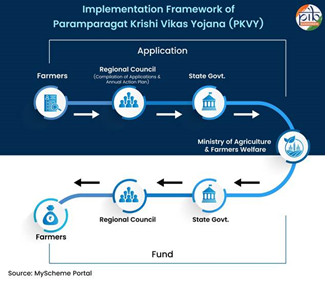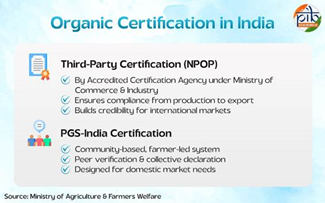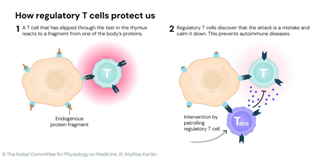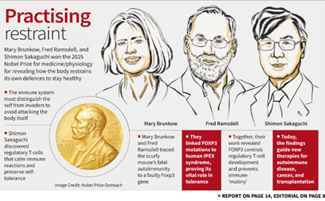Economy
Marine Stewardship Council (MSC):
-
- Context: About 10 Indian marine and saline fish and shrimp varieties are set to get the global MMSC certification soon.
- MSC is a non-profit organisation which aims to set standards for sustainable fishing.
- It was founded by World Wide Fund for Nature on 17 February 1997 and headquartered in London, United Kingdom.
- It is primarily based on the Food and Agriculture Organisation’s (FAO) Code of Conduct for Responsible Fishing and Guidelines for the Eco-labelling of Fish and Fishery Products from Marine Capture Fisheries.
- The certification is likely to increase the revenue of the fisheries sector by 30% and help fishermen and traders find new markets.
- Government, under the Pradhan Mantri Matsya Sampada Yojana (PMMSY), would subsidise the certification process, which is done by third-party auditors.
- The certification will also help fishing communities begin ecologically sustainable fishing practices and ensure steady incomes.
(TH)
Securities Transaction Tax (STT):
-
- Context: SC to decide on securities transaction tax’s constitutionality.
- STT is a direct tax levied on the purchase and sale of securities listed on recognized stock exchanges in India.
- Introduced in 2004, STT aims to curb tax evasion and generate government revenue from securities transactions.
- It is imposed on transaction value for securities including shares, derivatives, equity-oriented mutual funds, debt instruments, and government securities of equity nature.
- STT is applicable only to trades on recognized exchanges and not for off-market transactions or commodities/currency trades.
(TH)
FCI Showcases Open Market Sale Scheme at World Food India 2025:
-
- FCI — “Food for All, Life for All”.
- FCI showcased its Open Market Sale Scheme (Domestic) – OMSS (D) at World Food India 2025, held at Bharat Mandapam, New Delhi.
- The objective was to promote OMSS (D), which helps stabilize food grain prices by increasing market availability and enabling direct access for consumers and vendors through e-auctions.
- It also highlighted FCI’s broader operations such as procurement at MSP, scientific storage, TPDS distribution, and digital initiatives like the Depot Online System (DOS) and AI-based monitoring.
(PIB)
Science & Technology
Emerging Science, Technology and Innovation Conclave (ESTIC):
-
- ESTIC is India’s premier science, technology, and innovation platform, launched to foster collaboration among ministries, innovators, academia, industry, and global experts.
- It aims to accelerate deep-tech breakthroughs and showcase cutting-edge research aligned with the vision of “Viksit Bharat 2047.”
- The conclave emphasizes emerging frontier technologies such as artificial intelligence, quantum computing, biotechnology, space technologies, semiconductors, and clean energy.
- It is organized by the Department of Science and Technology (DST) in collaboration with multiple science-related ministries.
- The inaugural event is scheduled for November 3-5, 2025, at Bharat Mandapam, New Delhi, featuring Nobel laureates, global experts, and national scientific leaders.
- It replaces the Indian Science Congress as a high-level forum for scientific dialogue and technology-driven national development.
(TH+PIB)
Terms in the News
Alienation of Affection (AoA):
-
- AoA is a term from common law referring to a “heart-balm” tort, which allows a spouse to sue a third party, usually the lover, for wilfully interfering in the marriage and causing ‘loss of affection and companionship’.
- The doctrine rests on the idea that marriage carries legal interests like consortium, intimacy, support and a shared life.
- Notably, the Indian legal framework neither codifies nor prohibits AoA, yet in Pinakin Mahipatray Rawal versus State of Gujarat (2013), the Supreme Court held that “alienation of affection by a stranger, if proved, is an intentional tort.”
- In Indra Sarma versus V.K.V. Sarma, the top court further noted that AoA could even give children a cause of action against a third party for alienating their father.
- However, the doctrine has never been used to award damages in India.
(TH)
Schemes in the News
Paramparagat Krishi Vikas Yojana (PKVY):
-
- PKVY promotes organic farming in India through a cluster-based approach, empowering groups of farmers to adopt chemical-free, eco-friendly practices for better soil health and food safety.
- The scheme assists farmers with ₹31,500 per hectare for three years, covering organic inputs, certification (PGS-India and NPOP), and market linkages via direct benefit transfer.
- Participatory and third-party certification systems established credibility for Indian organic products domestically and internationally.
- The Jaivik Kheti portal helps farmers directly market organic produce to consumers.
- Large Area Certification (LAC) streamlines organic certification in non-chemical farming regions, integrating with the National Mission on Natural Farming (NMNF) for broader sustainable agriculture impact.
- PKVY has transformed organic farming into a mainstream movement, supporting rural incomes, environmental conservation, and climate resilience.


(TH)
Captions and Quotations
International relations:
-
- “Every country has problematic neighbours, and every big country has more problematic neighbours,”
(TH)
Society and Social Justice:
-
- India’s constitutional promise of dignity in life must extend to dignity in dying.
- Without public trust and awareness, even the best laws will fail to serve their purpose.
(TH)
Miscellaneous
NATIONAL SERVICE SCHEME AWARDS:
-
- President Smt. Droupadi Murmu presented the MY Bharat – National Service Scheme (NSS) Awards for 2022–23 at Rashtrapati Bhavan on October 6, 2025.
- NSS is one of the flagship programmes of the Government of India, which aims to develop the personality and character of students through voluntary community service.
- This Scheme was introduced in 1969 during the birth centenary celebrations of Mahatma Gandhi.
- The MY Bharat-NSS Award, instituted in 1993–94 by the Ministry of Youth Affairs and Sports, recognizes outstanding youth contributions to social service and nation.
(PIB)
Nobel Prize for Medicine:
-
- Mary E. Brunkow, Fred Ramsdell, and Shimon Sakaguchi received the prize for discovering regulatory T cells, which act as “security guards” of the immune system, preventing immune cells from attacking the body’s own tissues and triggering autoimmune diseases.
- Sakaguchi identified regulatory T cells in the mid-1990s, while Brunkow and Ramsdell linked these cells’ development to mutations in the FOXP3 gene, connecting mouse research with human autoimmune diseases.

-
- Their work explained how the immune system differentiates between the body’s own cells and foreign invaders, laying the foundation for new fields in immune regulation and medical research.
- The discoveries have advanced treatments for autoimmune diseases, cancer (by targeting regulatory T cells around tumors), and organ transplantation (by reducing rejection), with clinical trials now testing these approaches.
- These fundamental discoveries have spurred new therapies and techniques for immune-related disorders, forming a breakthrough in both basic science and medical practice.

(IE+TH)
PRACTICE MCQ’S
Q1. Consider the following statements regarding the Marine Stewardship Council (MSC) and its recent relevance for India:
1. MSC sets global standards for sustainable fishing, and its certification is based on the UN FAO’s Code of Conduct for Responsible Fishing.
2. The government, under the Pradhan Mantri Matsya Sampada Yojana (PMMSY), is subsidising the MSC certification process for Indian marine and saline fish and shrimp varieties.
3. MSC certification for Indian fisheries is expected to help fishing communities adopt ecologically sustainable practices.
Which of the above statements are correct?
a) 1 and 2 only
b) 2 and 3 only
c) 1 and 3 only
d) 1, 2 and 3
Answer: D
Explanation:
Statement 1 is correct: The Marine Stewardship Council (MSC) is a non-profit organisation co-founded by the World Wide Fund for Nature (WWF) and Unilever in 1997, headquartered in London. Its certification standards are aligned with the UN Food and Agriculture Organization’s (FAO) Code of Conduct for Responsible Fishing and its guidelines for eco-labelling.
Statement 2 is correct: The Indian government, under the Pradhan Mantri Matsya Sampada Yojana (PMMSY), is providing financial support to subsidise the MSC certification process for 10 key marine fisheries, helping reduce the cost burden (around ₹20 lakh per fishery, with 50% borne by the government) and encouraging sustainable practices.
Statement 3 is correct: MSC certification is expected to increase export revenues by up to 30% due to premium pricing in international markets (especially EU, US, Japan), improve market access, and promote long-term ecological sustainability and stable incomes for fishing communities.
Q2. Consider the following statements regarding the Securities Transaction Tax (STT) in India:
1. STT is a direct tax levied on the transaction value of securities traded on recognized stock exchanges.
2. It applies to equities, derivatives, and equity-oriented mutual funds, but not to off-market or commodity trades.
Which of the statements given above is/are correct?
a) 1 only
b) 2 only
c) Both 1 and 2
d) Neither 1 nor 2
Answer: C
Explanation:
Statement 1 and 2 both are correct: STT is a direct tax introduced in 2004 under the Finance Act, applicable only to trades on recognized stock exchanges. It is levied on the transaction value of securities such as shares, derivatives, and equity mutual funds, and explicitly excludes off-market deals, commodities, and currency trades.
The Supreme Court, in October 2025, issued notice to the Centre on a petition filed by trader Aseem Juneja challenging STT’s constitutionality. The petitioner argues that STT amounts to double taxation (as traders also pay capital gains tax) and violates the right to carry on trade under Article 19(1)(g), as it is imposed even on loss-making transactions.
Q3. Which of the following statements best describes the role of T cells in the human immune system?
a) They produce antibodies that neutralize pathogens in body fluids.
b) They directly engulf and destroy bacteria through phagocytosis.
c) They provide cell-mediated immunity by activating other immune cells and killing infected cells.
d) They transport oxygen and nutrients to immune cells during infection.
Answer: C
Explanation:
T cells mature in the thymus and play a crucial role in cell-mediated immunity by killing infected cells or supporting other immune cells.
Q4. Consider the following statements regarding the tort of Alienation of Affection (AoA) in India:
1. The Supreme Court in Pinakin Mahipatray Rawal v. State of Gujarat (2013) recognized AoA as an intentional tort.
2. It has not been codified in Indian law.
3. Under Indian law, children can independently file a civil suit for AoA if a third party alienates their parent.
Which of the above statements are correct?
a) 1 and 2 only
b) 2 and 3 only
c) 1 and 3 only
d) 1, 2 and 3
Answer: D
Explanation:
All the statements are correct: “Alienation of Affection” (AoA) is a doctrine from common law, sometimes called a “heart-balm” tort. It allows a spouse to seek civil damages from a third party for intentionally causing the loss of affection and companionship in a marriage, asserting that marriage carries rights like consortium, intimacy, and support.
Statement 2 is correct: Indian law does not codify or formally prohibit AoA. The Supreme Court, in the Pinakin Mahipatray Rawal v. State of Gujarat (2013) and Indra Sarma v. V.K.V. Sarma (2013) cases, recognized AoA as an “intentional tort” if the involvement of a third party is proven, but noted that it remains a judicially recognized, rather than legislatively adopted, concept.
Statement 3 is correct: The Supreme Court in Indra Sarma v. V.K.V. Sarma specifically noted that AoA could theoretically give children a cause of action against a third party for alienating their father, underlining broad potential application.
Q5. Consider the following statements regarding the Paramparagat Krishi Vikas Yojana (PKVY):
1. It provides financial assistance of ₹31,500 per hectare for three years to farmers for adopting organic farming practices.
2. The scheme promotes the Participatory Guarantee System (PGS-India) and National Programme for Organic Production (NPOP) for certification of organic produce.
3. The Jaivik Kheti portal has been developed to enable direct marketing of organic products from farmers to consumers.
4. Large Area Certification (LAC) was introduced under PKVY to fast-track certification in regions with long-standing chemical-intensive farming.
Which of the statements given above are correct?
a) 1, 2 and 3 only
b) 2, 3 and 4 only
c) 1, 3 and 4 only
d) 1, 2, 3 and 4
Answer: A
Explanation:
Statement 1 is correct: PKVY gives farmers ₹31,500/ha for three years to adopt organic farming practices, covering inputs, certification, and marketing support.
Statement 2 is correct: It promotes both Participatory Guarantee System (PGS-India) and National Programme for Organic Production (NPOP) for organic certification.
Statement 3 is correct: The Jaivik Kheti portal has been established so farmers can directly sell organic produce to consumers.
Statement 4 is incorrect: Because Large Area Certification (LAC) targets regions where chemical farming has never been practiced (not those with chemical-intensive farming), streamlining and fast-tracking certification in such zones.
Spread the Word



